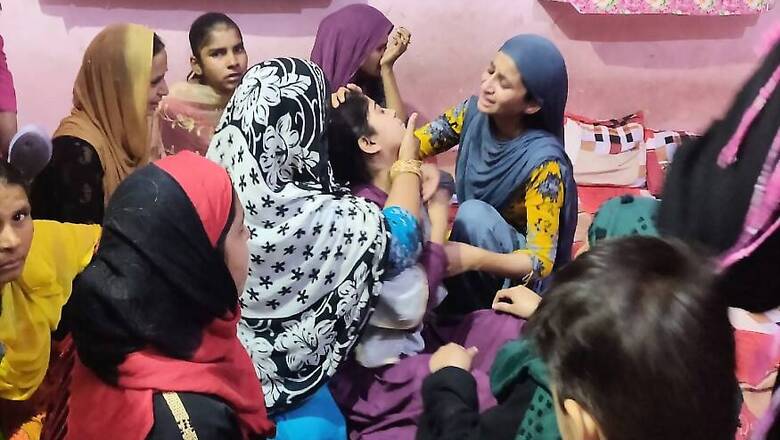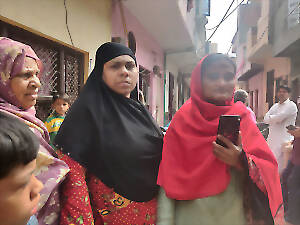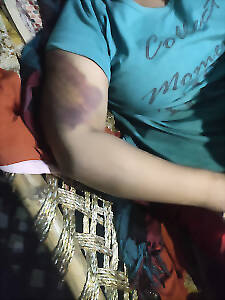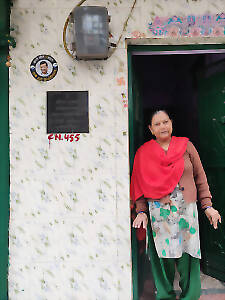
views
New Delhi: It all started with women.
Even as riots broke out in northeast Delhi on the night of February 23, women of the area and other areas of the national capital had emerged as the torchbearers of protests since December last year.
Critics and right-wingers called the women's protest "anti-national" for pushing back against India's recently passed and proposed citizenship laws, while others marvelled at the grit and bravery of these women, many of whom sat in locations like Shaheen Bagh and Jaffrabad-Seelampur for months in peaceful demonstration.
For a moment, it looked like women were finally breaking out of the shackles of patriarchy and taking control of the narrative of their own dissent.
And yet, in the aftermath of the three-day communal riots that rocked Delhi and led to the deaths of over 40, the women living in the crowded and unplanned tenements of northeast Delhi have been some of the worst and most undocumented victims of the riots, directly or indirectly. Incidentally, they are also being blamed for it.
What started as fear soon turned to pure horror, both Hindu and Muslim women recall, on February 25, as riotous mobs allegedly entered minority areas and torched homes, shops, vehicles and people.
News18 spoke to women living in three neighbourhoods that saw some of the worst violence - the Muslim dominated Mustafabad, the Hindu dominated Shiv Vihar and the Chand Bagh which has a relatively mixed population.
“When can I return home?”
The Muslim families of Shiv Vihar's Madina Gali started fleeing their homes from Sunday itself. By Thursday evening, the street had been reduced to ash.
Fatima, 45, has lived in Shiv Vihar for over 15 years. When she along with many other Muslim families escaped the riot-stricken street on Monday, she and her family left behind all their belongings, including their goats.
Worried that the goats would die at a time when her family's livelihood depended on them, Fatima braved it on Wednesday to go back but before she could find the goats, some men found her.
"They pulled my dupatta and tore my salwar's sleeve. I was saved by a family that was still living in the area," Fatima said. "The family said I was with them, the men abused them but left me alone," Fatima said, adding that the family hid her for some time till everything was clear. "If it weren't for them, I don't know if I would be here".
Shaheeda Bano has a similar story to tell. The 65-year-old was fleeing to Mustafabad on Tuesday evening when she was attacked by goons. "We did not leave like the others on Sunday or even Monday. But on Tuesday when fresh arson started and a mosque was burnt, we had to escape," she recalled.
"Two goons with covered faces blocked our road. One of them snatched my bag while the other beat me on my left knee with a stick". The men allegedly ran away after that, leaving the old woman wounded on the road.
Aamna, 50, who has a 23-year-old daughter, was saving up for her children's wedding. She had collected a lot of jewellery for both her daughter as well as her would-be daughter-in-law. When she left her home on the intervening night between Monday and Tuesday, she had no time to carry the valuables. With several reports of rampant looting in the deserted homes, Amna now fears all her and her family's belongings have been stolen.
Sabya, a student of IGNOU University, fears all her college and school documents have been burnt in the fire. She and all the other women had no idea when they could return home or even if they had a home to go back to anymore.
Meanwhile, the Hindu women who remained in Shiv Vihar recalled the three-nights of horror, claiming they had to take to the streets to patrol and hold vigil alongside men. "We don't know when the mobs are back, we are ready to protect our men and women," Asha Devi, 48, from Shiv Vihar said.
Roopa Arun, 22, blamed the anti-CAA protesters at Shaheen Bagh for the riots. "Had they not blocked the roads, none of this would have happened. Those women created problem and we suffered for it," she said. When reminded that many of the women protesting elsewhere such as Jaffrabad had themselves been hurt, the student shrugged.
“How do I feed my children?”
Located opposite the Hindu locality of Bhajanpura, Chand Bagh was one of the locations that saw heavy violence. Armed men roamed through the streets chanting communal slogans and torched homes in the many adjacent lanes that lined both sides of the Chand Bagh. A religious structure was torched, as were schools and shops.

Women in violence-hit Chand Bagh (Image credit: Rakhi Bose)
"We were locked in for almost three days while aggressive mobs with all manners of weapons roamed the streets outside," Zubeda Bano, 40, told News18 from her doorstep. The lane she has lived in for 40 years has Hindu families too. "During the clashes, the men would sometimes go out to check the situation. In those times, we were constantly scared of hooligans entering the home," Zubeda said. The mother of four still continues to fear for her and her family's life.
"Even now when the riots are over, we cannot step out without fear," said 22-year-old Sambreen who lived across from Zubeda. And even if they did, there was no point. Till Thursday evening, all doors and windows were shuttered. It was only after Friday that shops started to open. And even then, most items were out of stock or being sold at sky-high prices.
"Everything is expensive after the riots," Neelam Divakar who lived in an opposite lane pointed out. "Since shops were gutted and stores of goods destroyed, everything is very expensive here. The shopkeepers and vegetable vendors are bleeding us out in this time of crisis," she said.
The women also complained of not having any milk. Najman, 30, told News18 that since the day the riots started, shops in the locality have run out of milk. "The men in the house worry about riots, we have to worry about what to feed the children," Najma said. She also reported that gas lines had been disrupted and that gas was unavailable for three days. "We have been using chulhas on the roof or cooking on neighbour's stoves. We cook one time a day and try to eat that meal twice," Sambreen who has a young son and daughter, said.
While the days pass in strife, the nights are spent in fear. "We hold vigil outside our doors while the men patrol the gates. The police have failed us, they never came here despite all the violence. We will not let anyone enter house now," Manorama, 38, said.
She alleged that when violence broke out, all the women constantly stayed locked inside and did not even come to the windows, lest rioters find out and target the house. "Rape is often used as a weapon of rioting. But nothing like that happened here," the mother of two said.
While most of the women bristled, a pregnant Rubina Khatoon who was beaten by unidentified men at an anti-CAA protest remained prostate in pain from bruises to her head, arms and legs. Rubina refused to go to the local hospital, which locals claimed rioters had used to attack the neighbourhood. She and her husband were unsure of the health and fate of their unborn child.

Rubina Khatoon was beaten by unidentified men and suffered bruises on her body. (Image credit: Rakhi Bose
All the women in Chand Bagh said that had police arrived on time, a lot of the damage could have been prevented. Locals claimed that police forces did not come even till Friday afternoon.
"He will never return"
Mustafabad resident Anam Khan, 20, fell ill on Thursday after her family received the news of her brother's death. She was taken into the other room with women as was customary in a house of mourning where she bawled inconsolably. Her brother Shahzaan who had been missing since Monday had been found dead.
His body was discovered in Dilshad Garden's GTB hospital, the site where all severe casualties from the riots were being treated. "He was very close to me, what did he do to deserve this?" a tear-stricken aunt of Shahzaan wailed.
Shehzaan's Hindu landlady Kamlesh Sisodia blamed politics for the violence. "He was like a son to me," she said. His mother was away at Wazirabad, where she had been stuck for some time due to unstable conditions. She was unable to grieve with her family even after her son's death.
A few houses away, another young girl was steeped in mourning. Tasleen Fatima had married Ashfaq Hussain on February 14, Valentine's Day. Twelve days later, she found herself widowed after her husband was killed by rioters. "What was our fault?" she asked.
The Al Hind hospital in Mustafabad reportedly received about 54 women patients with various injuries in the three days of riots. Several women came in with assault injuries, pregnant women came in with complaints from smoke and tear gas, one riot-stricken pregnant woman even delivered a baby.

A Hindu woman in Muslim-dominated Mustafabad stands at the untarnished doorway to her home in Mustafabad (Image credit: Rakhi Bose)
Women who had fled Shiv Puri and were in Mustafabad confirmed that though there were several case of molestation while the women were fleeing, they did know of any rapes that took place on her street. "But if we had not fled the area, we would surely have been raped or killed. The men banging on doors were not just aggressive but also drunk," Shabana, a Shiv vihar escapee, said.
Ferzana Begum, 75, who strolled the streets outside the Farooqiya Jama Masjid in nearby Brijpuri, could not stop wailing. Members from her family were missing and the elderly lady wanted to know when the government would find them. Whether sane or insane it was hard to tell, she walked around the vandalised protest site that the women of Mustafabad had set up outside the mosque to protest against CAA. She picked up some of the broken shards of glass, cursed at the wind and threw it back into her crumbling surrounding.
















Comments
0 comment